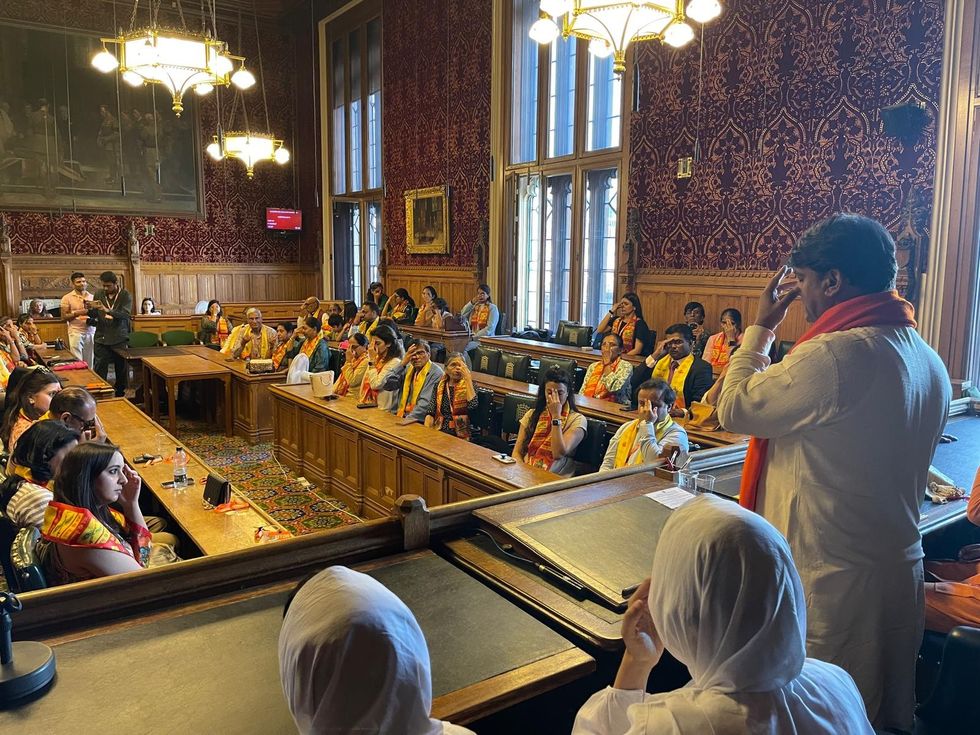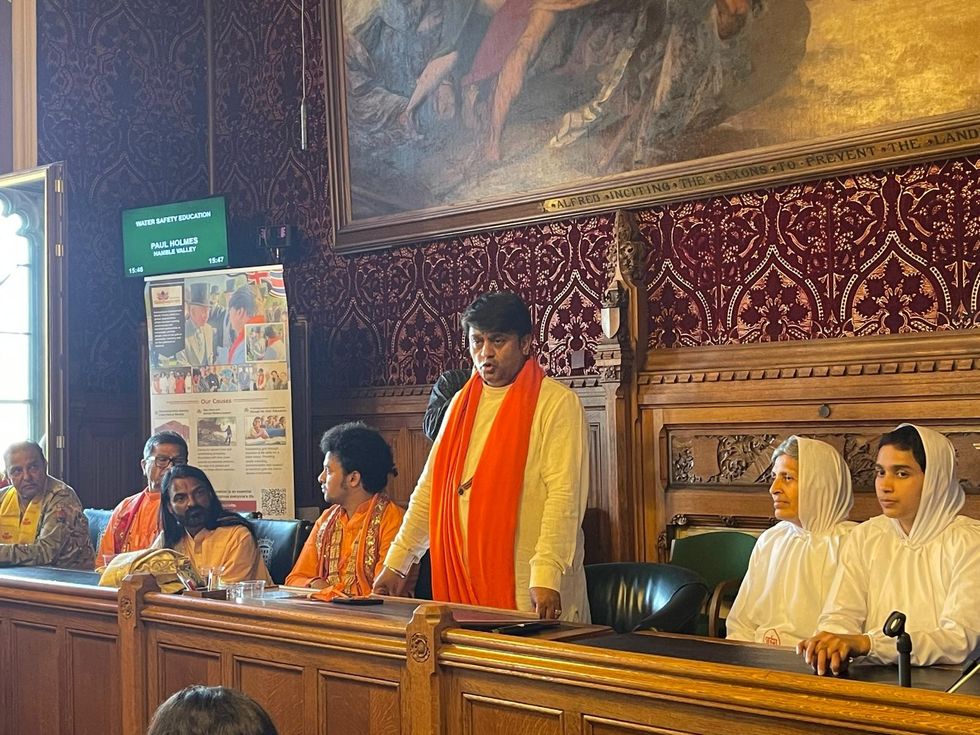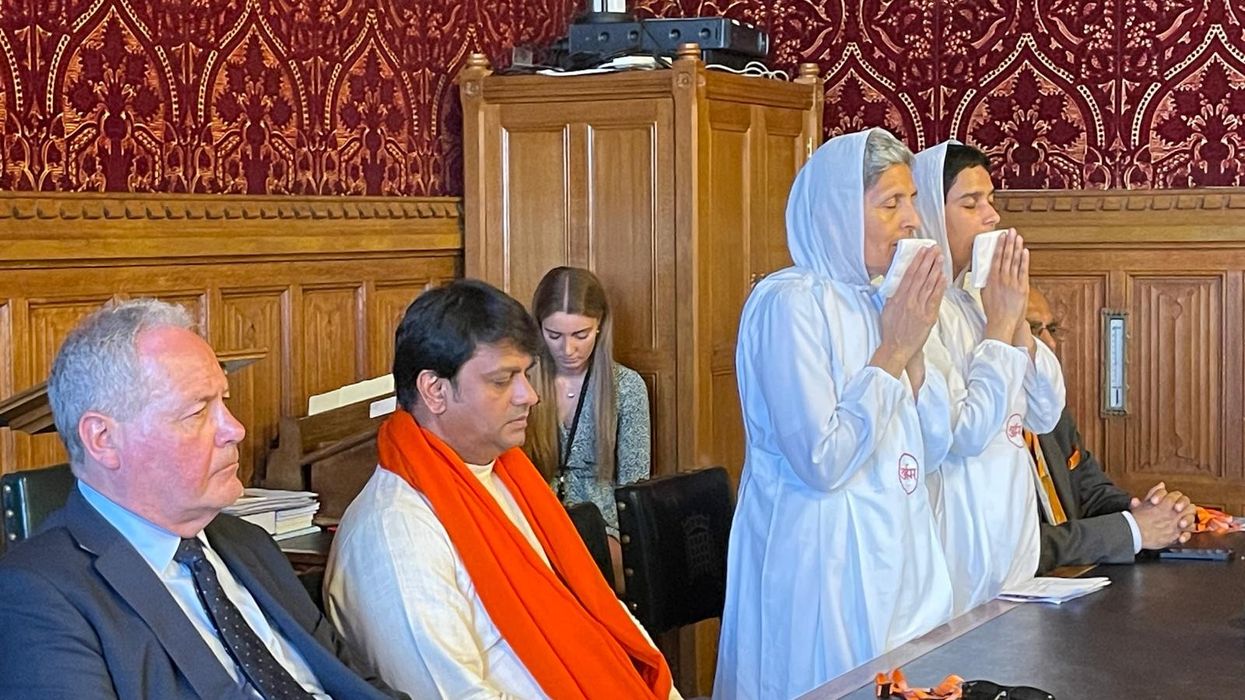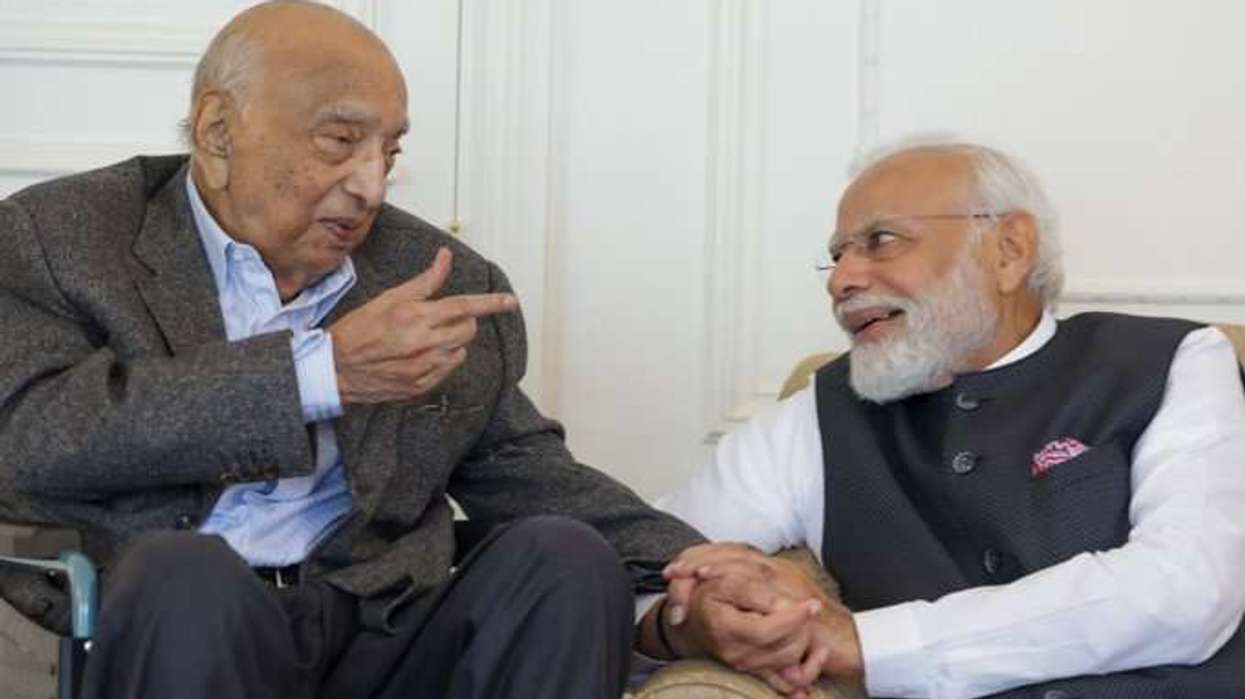The International Siddhashram Shakti Centre UK marked International Yoga Day with a spiritual and interfaith gathering at House of Commons. The event reflected the global theme, “Yoga for One Earth, One Health,” and was led by HH Shri Rajrajeshwar Guruji, global Sanatan Dharma and interfaith leader.
The programme began with a minute’s silence for the victims of the Air India tragedy, followed by prayers from Guruji, Pujya Rishi Ji Maharaj, Shri Niranjan Swami, and Pandit Shiv Puri Ji, with a Navkar Mahamantra chant by Samani Malay Pragya Ji and Neeti Pragya Ji.
Bob Blackman MP praised yoga as “India’s gift to the world” and acknowledged Guruji’s leadership in bringing wellness into public life, including the NHS.

In his keynote, Guruji said: “Yoga is a sacred discipline that unites body, mind and soul. It brings balance, builds confidence, and fosters harmony.”
He also led breathing exercises, underlining yoga’s role in modern wellbeing.
A special honour was presented to Pujya Rishi Ji Maharaj for his service to Sanatan Dharma and youth engagement.

Cultural performances by Chittal Shah’s team, reflections from young voices like Vanisha, Kavya, and Giya, and contributions from international guests including Mahendra and Prya Ramcharan added depth to the event. Representatives from the NHS, British Army, and faith groups also spoke on yoga’s relevance.




